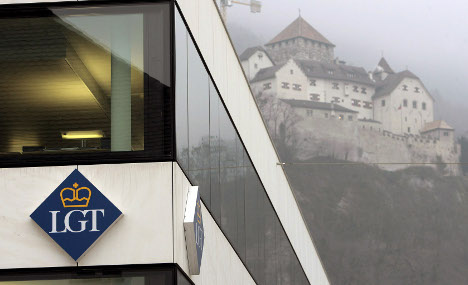Banks in the tiny alpine principality, which lies between Switzerland and Austria, had been under investigation since February 2008, when the German government purchased stolen bank data from a former employee of the Liechtenstein princely house’s bank, LGT Group.
The data led to hundreds of individual investigations into tax violations, including one that saw former Deutsche Post boss Klaus Zumwinkel sentenced to two years probation and a fine of €1 million in January 2009.
State prosecutors in Bochum have been investigating some 40 employees of former LGT subsidiary LGT Treuhand on suspicion of abetting tax evasion. But prosecutors agreed to suspend their investigation if they pay fines of some €3.65 million, and the LGT group pays another €46.35 million, daily Süddeutsche Zeitung reported.
Both sides called the agreement a success, the paper said, explaining that the suspects in Liechtenstein escaped trial and Germany still recovered some lost tax revenue.
Thanks to the investigation the country has already raked in several hundred million euros from tax dodgers due to voluntary disclosure from offenders after the Liechtenstein scandal, in addition to a more recent case involving the purchase of stolen bank data from Switzerland.
DPA/ka



 Please whitelist us to continue reading.
Please whitelist us to continue reading.
Member comments